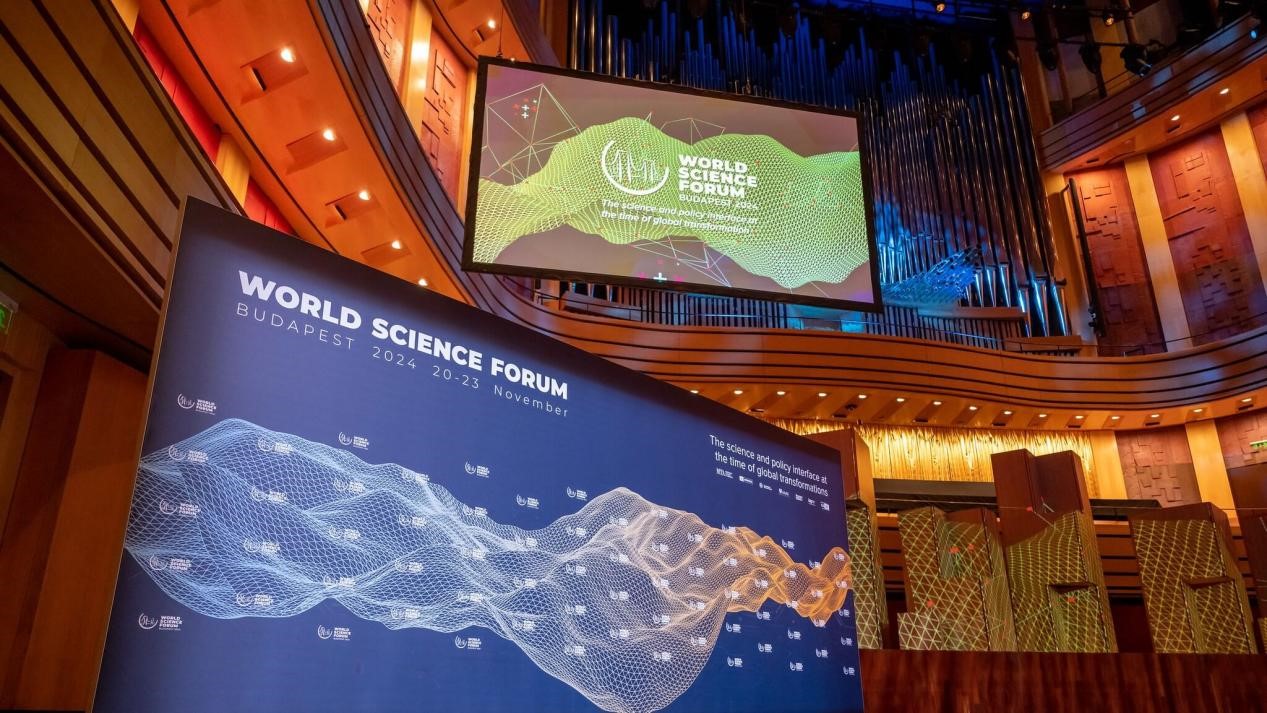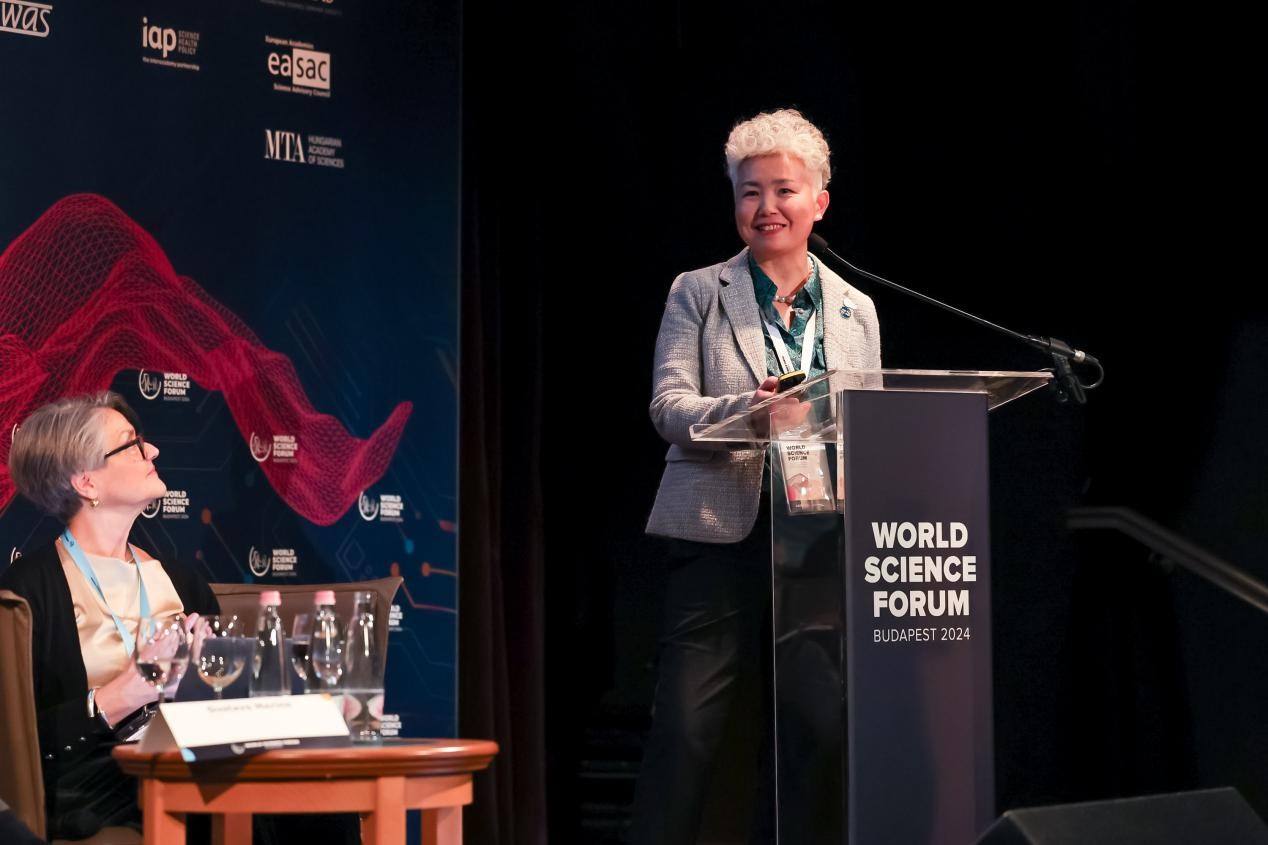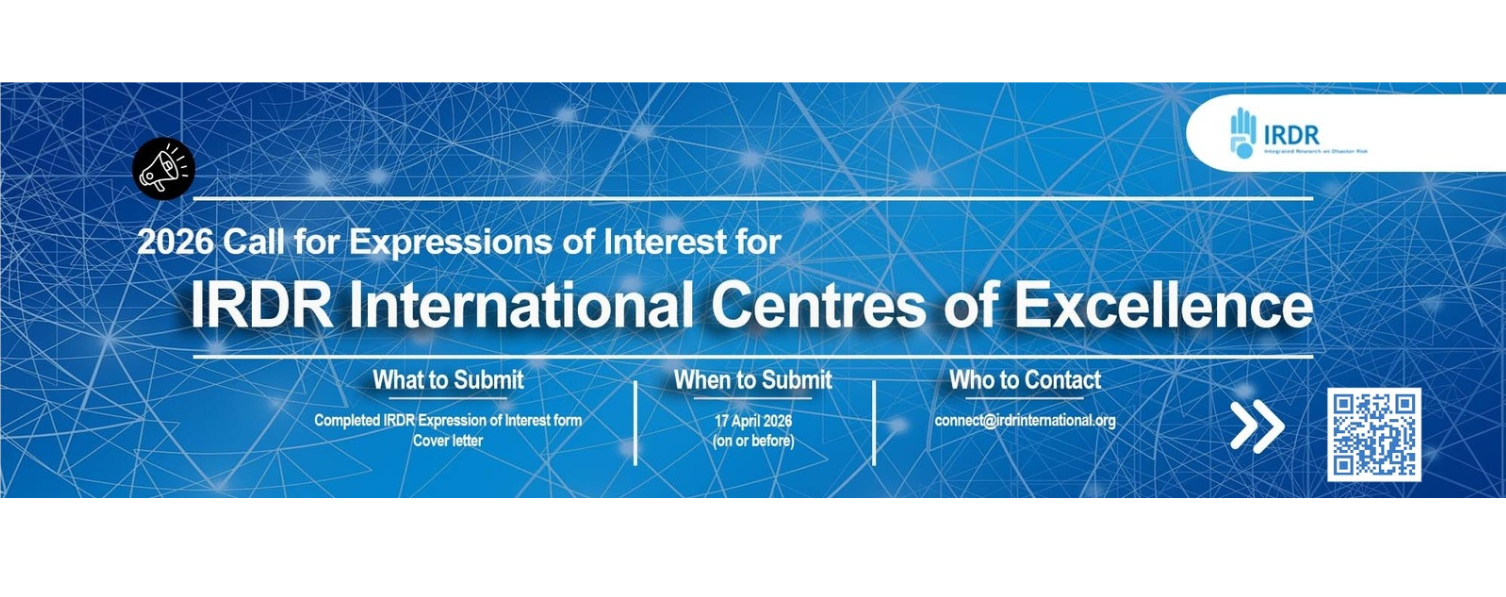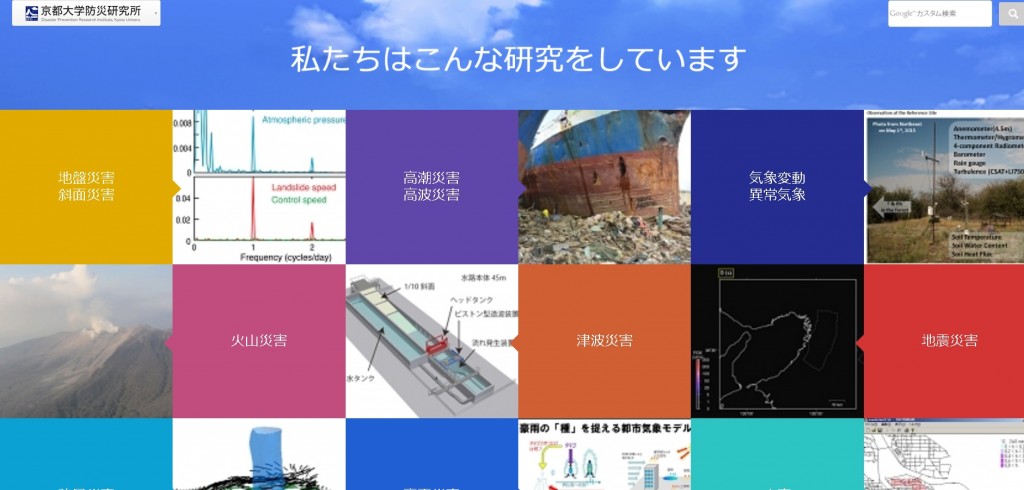The 11th World Science Forum, held from 20-23 November 2024 in Budapest, concluded with the adoption of a significant declaration addressing the critical nexus between science and policy during times of profound global change.

20-23 November 2024, Budapest
Overseen by the founding organizations of the World Science Forum (WSF) – UNESCO, ISC, and MTA – alongside partner organizations including AAAS, TWAS, IAP, and EASAC, the forum brought together a multitude of voices to deliberate on urgent global challenges.

Saini Yang, the Executive Director of IRDR
Saini Yang, the Executive Director of IRDR, delivered a speech at the thematic session of Bridging the Gap: Trust and Evidence-Informed Policy and Decision Making. She emphasized the importance of balanced and realistic applications of technology, particularly in complex fields like disaster risk reduction, advocating for mutual respect and co-development over blind trust in science. Furthermore, she called on action for scientists to embrace their roles as changemakers, fostering long-term trust and collaboration by planning for the future with open-mindedness, humility, and a focus on inclusivity, which also aligns with the aims and mission of IRDR.
The Declaration of WSF highlights the urgent need for scientific insights to navigate the complexities of our evolving world. It emphasizes the role of science as a universal language, essential for guiding societies and policymakers towards informed decision-making, particularly in the face of climate change, armed conflicts, and disruptive technologies. Acknowledging the importance of evidence-based policy-making, the Declaration underscores the risks posed by misinformation and the imperative for trust in scientific endeavors. It calls for a commitment to shared values, including scientific freedom, integrity, and diversity, to ensure the production of trusted knowledge.
The Declaration also urges the global community to engage in the International Decade of Sciences for Sustainable Development, emphasizing the need for ethical standards in scientific developments and emerging technologies. Attendees of the forum agreed on a series of actionable steps, including calls to strengthen science advice mechanisms within governments, protect scientists in times of conflict, and promote science education for critical thinking and societal empowerment. In a collective effort to advance science-policy interfaces and foster equitable science for all, the forum participants expressed their commitment to continued dialogue with international partners and stakeholders.
For further information, please visit the World Science Forum website ( https://worldscienceforum.org/contents/draft-declaration-of-the-11th-world-science-forum-110170 ).





